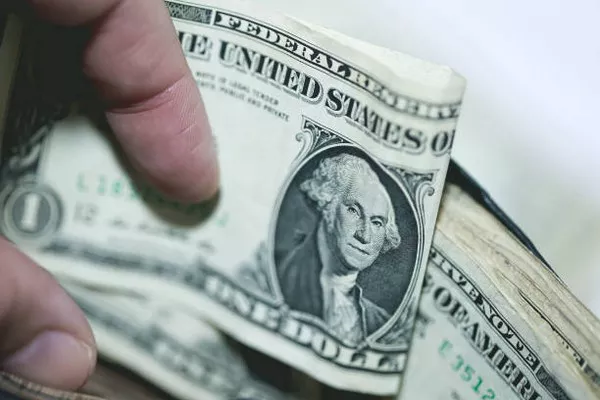The U.S. dollar serves as the world’s primary reserve currency, underpinning global trade, finance, and economic stability. Its stability is crucial for maintaining confidence in financial markets worldwide. However, the hypothetical scenario of a U.S. dollar crash, while improbable, raises significant concerns due to its potential far-reaching consequences. Understanding the implications of such an event is essential for policymakers, investors, and individuals alike.
The Mechanics of a Dollar Crash
A U.S. dollar crash refers to a rapid and significant devaluation of the currency relative to other major currencies, leading to a loss of confidence in its value. This could occur due to various factors, such as excessive money printing by the Federal Reserve, unsustainable levels of national debt, geopolitical instability, or a loss of faith in the U.S. economy.
The consequences of a dollar crash would reverberate across multiple sectors, both domestically and internationally, with profound economic, financial, and geopolitical implications.
Domestic Economic Impact
Inflationary Pressures: A sudden devaluation of the U.S. dollar would likely lead to a surge in inflation as the cost of imported goods and commodities rises sharply. This would erode purchasing power, reduce standards of living, and strain household budgets.
Interest Rates and Debt: To combat inflation, the Federal Reserve would need to raise interest rates aggressively, leading to higher borrowing costs for businesses and consumers. The burden of servicing the national debt, already at historic levels, would escalate, potentially triggering a fiscal crisis.
Asset Prices: Financial markets would experience heightened volatility, with stock prices plummeting, and bond yields soaring. Real estate markets could also suffer as mortgage rates spike, dampening demand and depressing property values.
Unemployment and Economic Recession: The combination of inflationary pressures, higher interest rates, and financial market turmoil could precipitate a severe economic downturn, resulting in job losses, business closures, and a contraction in economic activity.
International Ramifications
Global Trade Disruptions: A U.S. dollar crash would disrupt international trade flows, as the sudden depreciation of the dollar makes U.S. exports cheaper but imports more expensive. This could lead to trade imbalances, protectionist measures, and supply chain disruptions, affecting businesses worldwide.
Currency Wars: Other major economies may respond to a dollar crash by devaluing their own currencies or implementing capital controls to protect their export industries and shore up their competitiveness. This could escalate into a currency war, exacerbating global economic instability.
Emerging Markets Vulnerability: Emerging market economies, particularly those heavily reliant on dollar-denominated debt, would face significant challenges. A dollar crash could trigger capital flight, currency crises, and sovereign defaults, amplifying financial contagion across borders.
Commodity Prices: The U.S. dollar’s status as the primary reserve currency means that commodities such as oil, gold, and agricultural products are priced in dollars. A dollar crash would lead to a surge in commodity prices, further exacerbating inflationary pressures globally.
Geopolitical Implications
Shift in Global Power Dynamics: A weakening of the U.S. dollar’s dominance could accelerate the ongoing shift in global power dynamics, with implications for geopolitical alliances, economic influence, and international relations.
Rise of Alternative Reserve Currencies: A dollar crash could prompt countries to diversify their foreign exchange reserves away from the dollar and towards alternative currencies such as the euro, yen, or renminbi. This would reduce the dollar’s hegemony and reshape the international monetary system.
Security Concerns: Economic instability resulting from a dollar crash could fuel social unrest, political instability, and geopolitical tensions, particularly in regions highly dependent on U.S. economic aid or trade.
Mitigation Strategies
While the scenario of a U.S. dollar crash is fraught with dire consequences, there are measures that policymakers can take to mitigate its impact:
Fiscal and Monetary Policy Coordination: Governments should pursue prudent fiscal policies to reduce budget deficits and public debt levels. Central banks must exercise caution in managing monetary policy to avoid excessive money printing and inflationary pressures.
Strengthening International Cooperation: Enhanced coordination among central banks, financial regulators, and multilateral institutions is essential to prevent and manage currency crises. International forums such as the G20 and IMF play a crucial role in fostering cooperation and crisis resolution.
Diversification of Reserve Holdings: Countries should diversify their foreign exchange reserves to reduce reliance on any single currency, thereby enhancing resilience to currency shocks and market volatility.
Structural Reforms: Structural reforms aimed at enhancing productivity, promoting economic diversification, and improving financial resilience can bolster economic stability and reduce vulnerability to external shocks.
See Also Is Dollar Expected To Rise In Pakistan
Conclusion
While the likelihood of a U.S. dollar crash remains low, its potential consequences are profound and far-reaching. From domestic economic turmoil to global trade disruptions and geopolitical tensions, the ramifications of such an event would be felt across multiple dimensions. Policymakers, businesses, and individuals must remain vigilant and proactive in addressing underlying vulnerabilities and implementing measures to safeguard against the possibility of a currency crisis. Only through concerted efforts and international cooperation can we mitigate the risks and navigate the challenges posed by a U.S. dollar crash effectively.


